Ikigai Dhaka: Redefining furniture craftsmanship
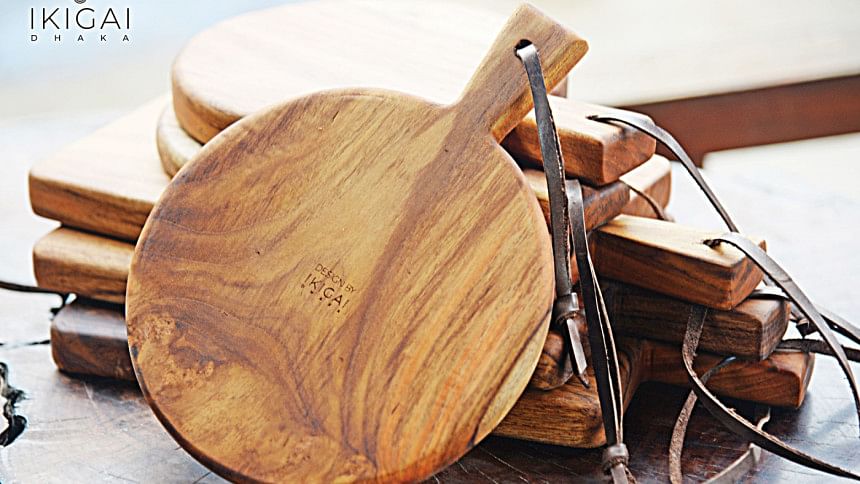
Nawajesh Salahin Sunny's fame was sitting at his factory in a zen-like state of mind amidst scattered wooden planks and huge containers. His craftsmen noisily worked all over the place; while he supervised the work being done to give the factory a showroom-like facelift.
A graduate of BGMEA University of Fashion & Technology, Sunny worked many years as a designer in the RMG sector. When he got bored, he shifted his gear to making full-furnished container homes. However, the business idea backfired due to the Covid-19 pandemic.
He then wanted to restart slowly by just making aesthetically pleasing, small furniture and kitchen accessories. And thus, Ikigai Dhaka was born.
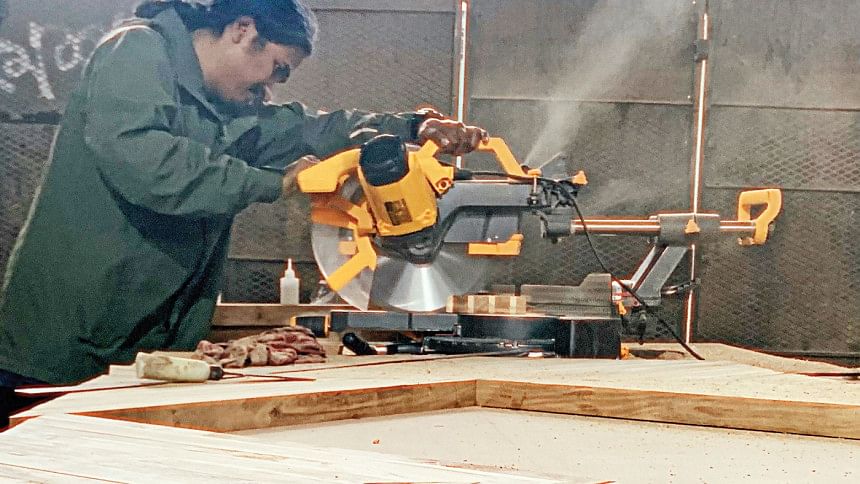
For those of you who are not familiar with Ikigai Dhaka, let me clarify that it is just a four-year-old furniture and lifestyle brand.
When I met them at the recently-concluded Dhaka Night Market, the name stuck with me for their aesthetically designed handcrafted kitchen wares and that thin, tanned, brown leather tag.
Everything about them spelt artistic appeal and like a hound, I followed their visiting card and found them at the chaotic Bosila Garden City.
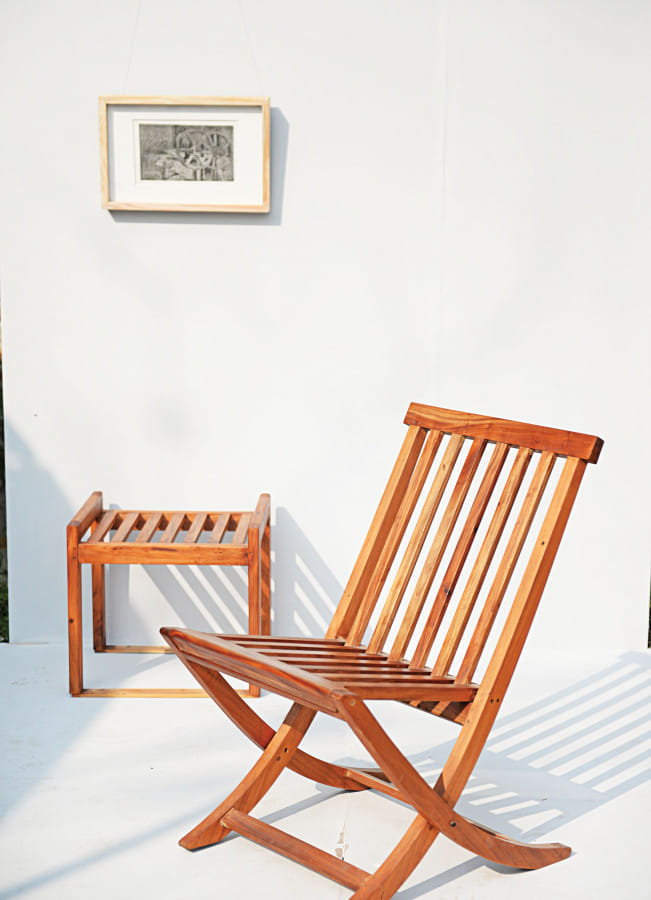
Sunny said, "When we make a box, we don't just nail the four wood slabs with the base and leave it at that. Well, yes that is how an untrained carpenter with no design concept would do it, but I want to make the box look tasteful. So, I add tiny wooden hinges and hidden nails and retain the wood colour to appreciate its natural beauty.
"I lack the skills of a carpenter, so I work with my craft makers and teach them to think about design and visual appeal. I'm instilling the idea of detailing in them."
Ikigai Dhaka is still taking baby steps and according to Sunny they still have no identity in the tough furniture business. Their few ventures include making furniture for Ajo restaurant, Mermaid Beach Resort, and renovating a few family heirloom pieces for people who just walked in on their factory.
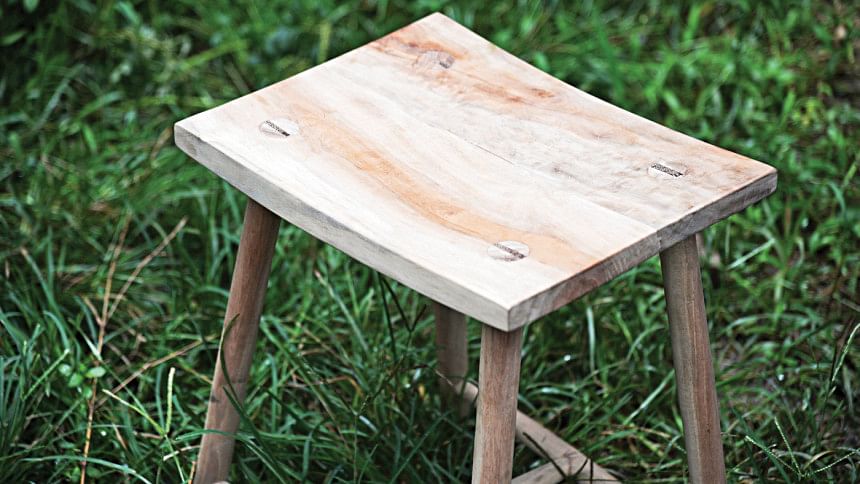
Besides conventional teak and mahogany, they work with wood that is not usually used for furniture-making -- babla, neem, shishu, gamari, shal, kanthal, and taal. The marble effect of different wood grains and the texture one can get are the fascinating aspects of Ikigai's small items like chopping boards, boxes, trays, spatulas, cheese and charcuterie boards, and food bowls.
"In today's market culture, which is mostly online, you sit on your armchair and you asked 'price please' for the first thing that pops up on your screen. You are not concerned with the feel of the product, the durability of the colour, and most importantly -- whether you actually need it or not!
"These random purchases are making your homes cluttered like a junkyard. You have no attachment to these mindless purchases. You cannot build a story with your chair, sofa, or bed unless you appreciate their worth and comfort," Sunny said.
The Ikigai philosophy originates in Japan and is the concept of discovering your purpose through exploring the intersection of what you love, what you're good at, what the world needs, and what you can be paid for. When aligned properly it gives you a purposeful life.
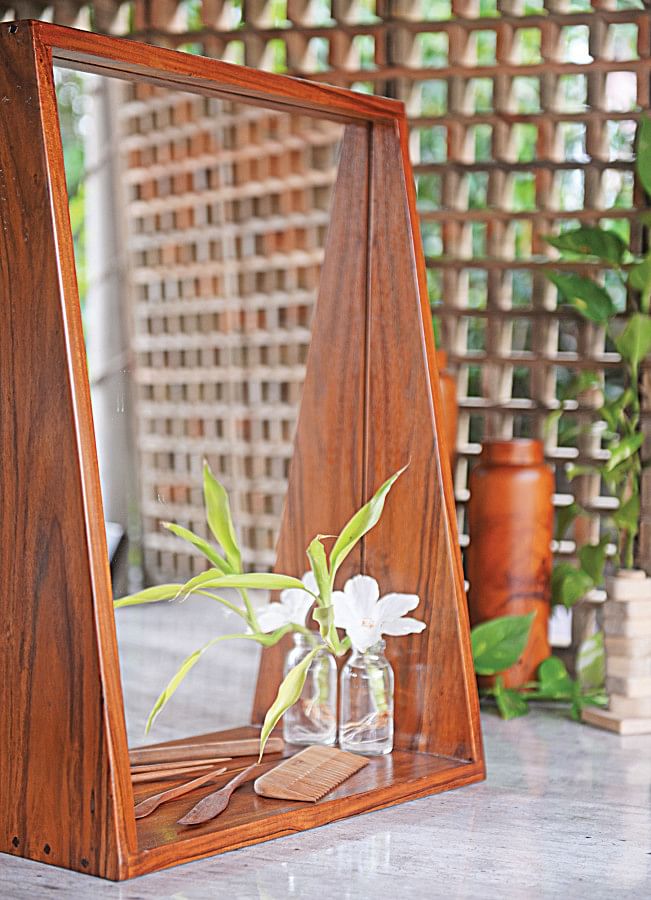
Through his furniture designs, Nawajesh Salahin Sunny is teaching us that we need to keep life simple and cherish each object in it.

 For all latest news, follow The Daily Star's Google News channel.
For all latest news, follow The Daily Star's Google News channel. 



Comments